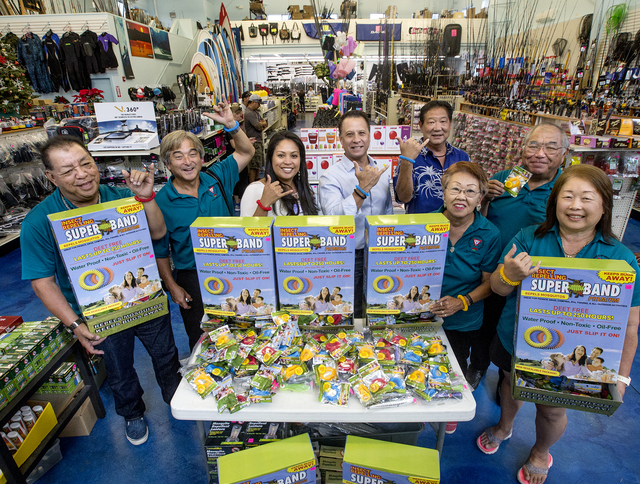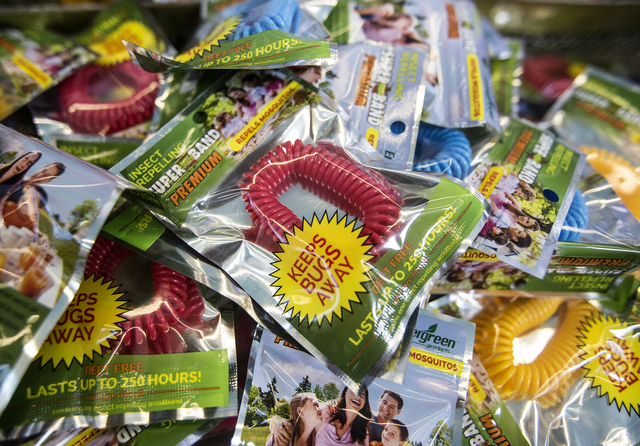The state’s “Fight the Bite” campaign against dengue fever is getting extra help from the Hilo community. ADVERTISING The state’s “Fight the Bite” campaign against dengue fever is getting extra help from the Hilo community. Thanks to a partnership between
The state’s “Fight the Bite” campaign against dengue fever is getting extra help from the Hilo community.
Thanks to a partnership between the Hilo Y’s Men &Women Service Club, Queen Liliuokalani Children’s Center, Pinnacle Investment Group, S. Tokunaga Store and Hope Services Hawaii, 1,500 mosquito-repellent bracelets are being distributed to homeless people around the island.
Lance Niimi, district governor for the Y Service Club, said his group had just completed a Christmas tree sale fundraiser, and wanted to use some of the proceeds for another service project. He’d noticed the mosquito bands being sold at the S. Tokunaga store, and decided to purchase 500.
Niimi is also a manager for the Hilo unit of the Queen Liliuokalani Children’s Center. The Center purchased bands for the outreach effort as well, a combined order that drew the attention of store owner Mike Tokunaga.
Tokunaga then offered a discount on the bands, which he originally began stocking for campers and fishermen who frequent mosquito-infested areas.
“It’s going to the community; we like to give back to the community,” Tokunaga said. The bands have become much more popular since the dengue outbreak started, he said.
“It’s actually nontoxic,” Tokunaga said of the DEET-free lemongrass oil mix used on the bands.
Distribution will be managed by Hope Services Hawaii, a nonprofit organization that works with homeless and underserved populations across the island. Executive director Brandee Menino said in an email the bands would be distributed by the organization’s outreach workers who are familiar with the homeless community.
Since the dengue outbreak began, cases in vulnerable populations have been watched closely.
“Early on, it was identified that because of the environment and conditions they live in, there was increased risk of mosquito bites,” county Civil Defense Administrator Darryl Oliveira said.
In November, Hope Services Hawaii’s annual health fair provided not only vision screenings, flu shots and bags of hygiene items to the homeless community, but also cans of mosquito repellent donated by Longs. Longs, as well as Foodland, have continued to make donations to the Civil Defense, which then makes them available to Hope Services.
The Salvation Army and the Hawaii Food Basket have incorporated repellent distribution into their regular outreach as well, with the Salvation Army also offering long-sleeve clothing.
Most recently, a partnership with the United Way has provided 500 mosquito nets.
Teams of emergency medical service workers and nurses have also made outreach efforts to determine if anybody was sick or had had dengue symptoms.
“It’s more of an educational outreach, as well as making sure those individuals don’t fall through the cracks because of lack of health care access,” Oliveira said.
“Anecdotally, we’ve only seen a handful of cases involving the homeless population,” he added. “We’re cautiously optimistic that that particular part of the population hasn’t been exposed to a lot of infected mosquitoes.”
Tokunaga said he hoped the bracelet distribution would help the dengue situation. As of Friday, 163 cases had been identified.
“We’ll do as much as possible on our part,” Tokunaga said. “I’ve talked to several people who had (dengue), and it wasn’t too pleasant.”
Email Ivy Ashe at iashe@hawaiitribune-herald.com.




